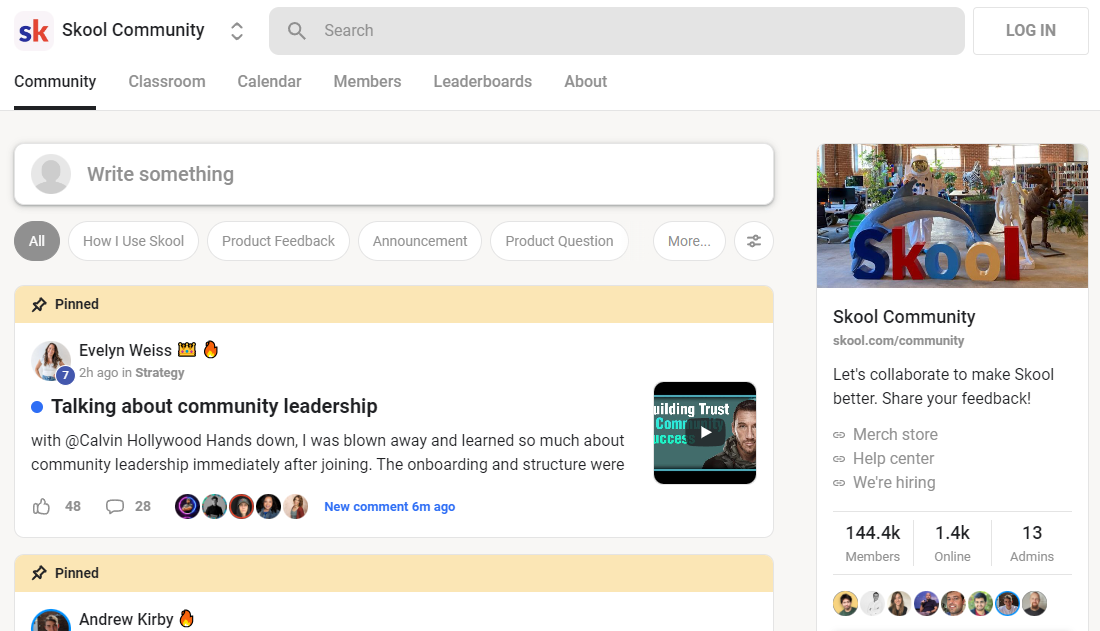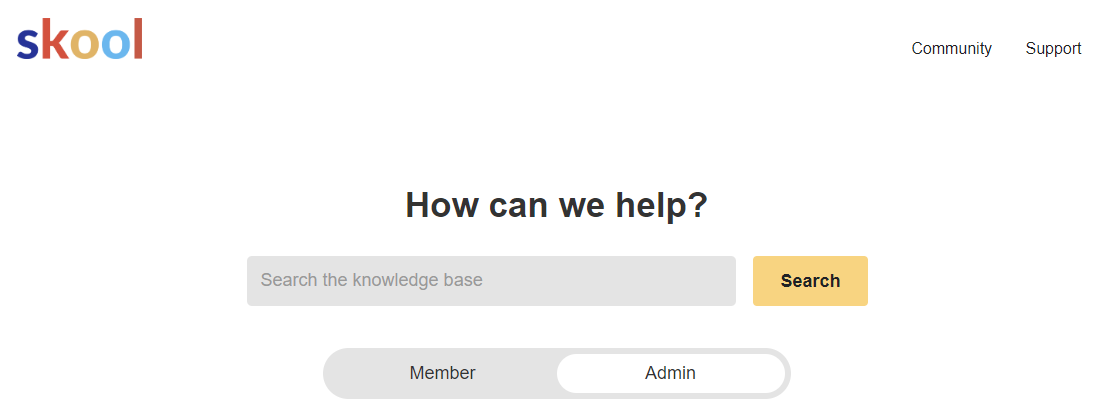Skool uses best-in-class gamification functions that boost interaction. For instance, participants can gain levels based upon their participation, which unlock course material and various other benefits that better motivate them.
Previously, designers needed to utilize different tools for holding programs, developing neighborhoods and managing e-mail marketing. This developed a disjointed experience for both creators and their audiences.
Producing Courses
Skool has a simple, user-friendly user interface and prioritizes community building and training course organizing over various other attributes. It permits makers to produce a vibrant neighborhood for their courses and coaching programs by connecting them with the best target market. This also helps them keep an eye on the health of their content business with the help of an easy control panel.

To start, a person can register for a totally free 14-day test of Skool. Afterwards, they can pay $99 a month for the system to hold a solitary community. There are no other pricing options offered for the moment. Skool additionally refines repayment and pays creators weekly, yet it does bill a 2.9% transaction fee.
One of the special elements of Skool is that it can be used to develop interactive training courses. These can include live webinars, group jobs and real-time discussions. These types of courses encourage participation and increase course completion prices. In addition, Skool’s gamification attributes help to urge area involvement. For example, members can make points and unlock program material when they reach certain levels in the community.
Individuals can likewise make use of the social feed upon Skool to upload updates and connect with others in the area. The feed appears like a Facebook group, yet with an extra controlled method of posting. This helps to avoid the sort of spam and abuse that happens on other social platforms.
Handling Communities
Skool is a very basic system to make use of, for both members and admins. Its simpleness is just one of its major selling factors– when somebody joins your area they will not be faced with a number of choices or attributes that can hinder their experience and perplex them.
The platform begins as a personal team by default, but you can quickly alter this to open your neighborhood to anyone that you wish to belong to it. As soon as you’ve done this you’ll see a social feed like you would on Facebook Groups or WhatsApp (but without all the rip-off things and swearing).
You can likewise include a classroom tab to your neighborhood that you can use to share educational material with your participants. This feature is specifically valuable for areas that are focused on understanding or professional development as it helps to create an educational framework and makes it easy for participants to track their progress. Additionally, the platform has gamification elements that allow members to earn factors by liking blog posts or comments. When they get to a particular level they can unlock sources, such as training courses, better driving involvement.
The various other awesome thing is that Skool has a mobile app, similar to Mighty Networks or Slack, so members can stay up to date with your area and engage on the move. This is a terrific method to urge and involve your members and to help them obtain assistance from each other when they need it, instead of simply turning to you for responses.
Skool Game Website
Skool focuses on gamification, enabling users to gain factors and badges for their payments. This motivates participants to engage with the area and add to conversations. In turn, this helps them level up and unlock advantages like video clips and various other material. Admins can likewise establish courses to be unlocked at specific levels to more drive involvement.

The Skool user interface is very clean and intuitive. Its highlights include the Community tab, which looks similar to a Facebook team feed. Below, customers can post comments and text along with upload photos, links and video clips. Participants can additionally see each others accounts and get in touch with them. Moreover, customers can create private teams in the area to talk about particular topics.
One more function of Skool is the Classroom tab, which resembles a YouTube livestream or Zoom meeting. Using this, administrators can hold trainings and webinars for their students. They can likewise include events in the schedule to stay upgraded on upcoming occasions and Skool Game Website.
However, some facets of Skool might utilize renovation. For example, the platform isn’t adaptable when it pertains to monetization as individuals can not use several prices rates for their courses and neighborhood subscriptions. Additionally, the tool lacks an email advertising function, which could be a deal breaker for some training course makers. It likewise doesn’t have indigenous video clip hosting, meaning that customers require to utilize external systems like YouTube, Loom and Vimeo for their video clips.
Including Content
The process for adding web content and communicating with members on Skool is very easy and simple. Admins can create articles with text, GIFs, video clips and surveys. They can likewise include event schedules to inform neighborhood participants of upcoming group Zoom calls or live streams. In addition, they can utilize Skool’s email program attribute to send a message to the whole area with a solitary click. This gets rid of the demand for identifying and listing segmentation, which can be difficult.
In addition, Skool’s gamification features can increase involvement and customer retention. It motivates participants to interact with the material regularly by compensating them with various benefits. These include unlocking program content, earning factors and earning an area on community leaderboards.
While Skool uses a host of valuable functions for producing and supplying online training courses, it’s not for every person. The system is best for trainers, consultants and various other details entrepreneurs. However, the cost can be a challenge for some individuals looking to monetize their online content.
Additionally, the lack of standard rates and a short free trial might be a deterrent for many. On top of that, the system’s laser-focus on eLearning can make it much less desirable for people who wish to offer various other digital items. However, in spite of these drawbacks, Skool Game Website is still a viable alternative for any individual aiming to produce and monetize on the internet courses.